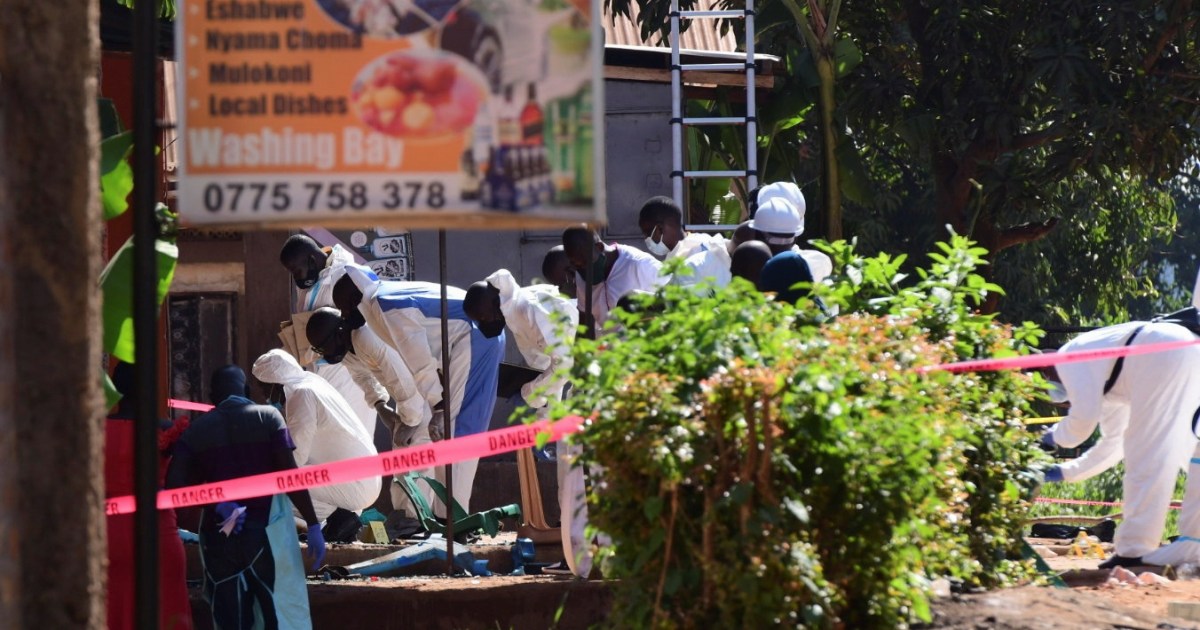The Islamic State group claimed responsibility for an improvised explosive device attack on the outskirts of the Ugandan capital Kampala on Saturday evening, and said it was targeting what it called spies for the government.
The organization said in a statement posted on the Telegram application late on Sunday that a group affiliated with it detonated the explosive device in a bar where "elements and spies of the Crusader Ugandan government" were meeting in Kampala.
For its part, the Ugandan police said that the explosion occurred in a restaurant on the outskirts of the capital, killing at least one woman, and wounding 3 people, two of whom are in critical condition.
She explained that the victim is a 20-year-old waitress, and added that the explosive device was stuffed with nails and metal parts.
The police said that the information they collected indicates that 3 men entered the restaurant as customers and left a plastic bag under a table and left the place minutes before the explosion, and considered that the indications indicated that it was a "domestic terrorist act."
Ugandan President Yoweri Museveni said on Twitter, "It appears to be an act of terrorism, but we will catch the culprits."
"The population should not be afraid, we will defeat this criminal act as we have defeated all other criminal acts committed by pigs that do not respect life," he added.
Western warnings
The bombing came days after the United Kingdom issued travel advisories warning its citizens that terrorists were planning attacks in Uganda, in east Africa, and that they could be "indiscriminate attacks targeting places visited by foreigners".
On October 8, the Islamic State claimed responsibility for its first attack in Uganda, a bombing that targeted a police station in Kawimbe, near the site of Saturday's explosion.
The organization said in a statement that a unit of its divisions located in Central Africa detonated an explosive device, which resulted in injuries and damage to the police infrastructure.
On June 12, 2010, the Ugandan capital witnessed bombings that killed more than 70 people, which were claimed by the Somali Mujahideen Youth Movement, which it said was a punishment for Uganda for its deployment of troops in Somalia.

